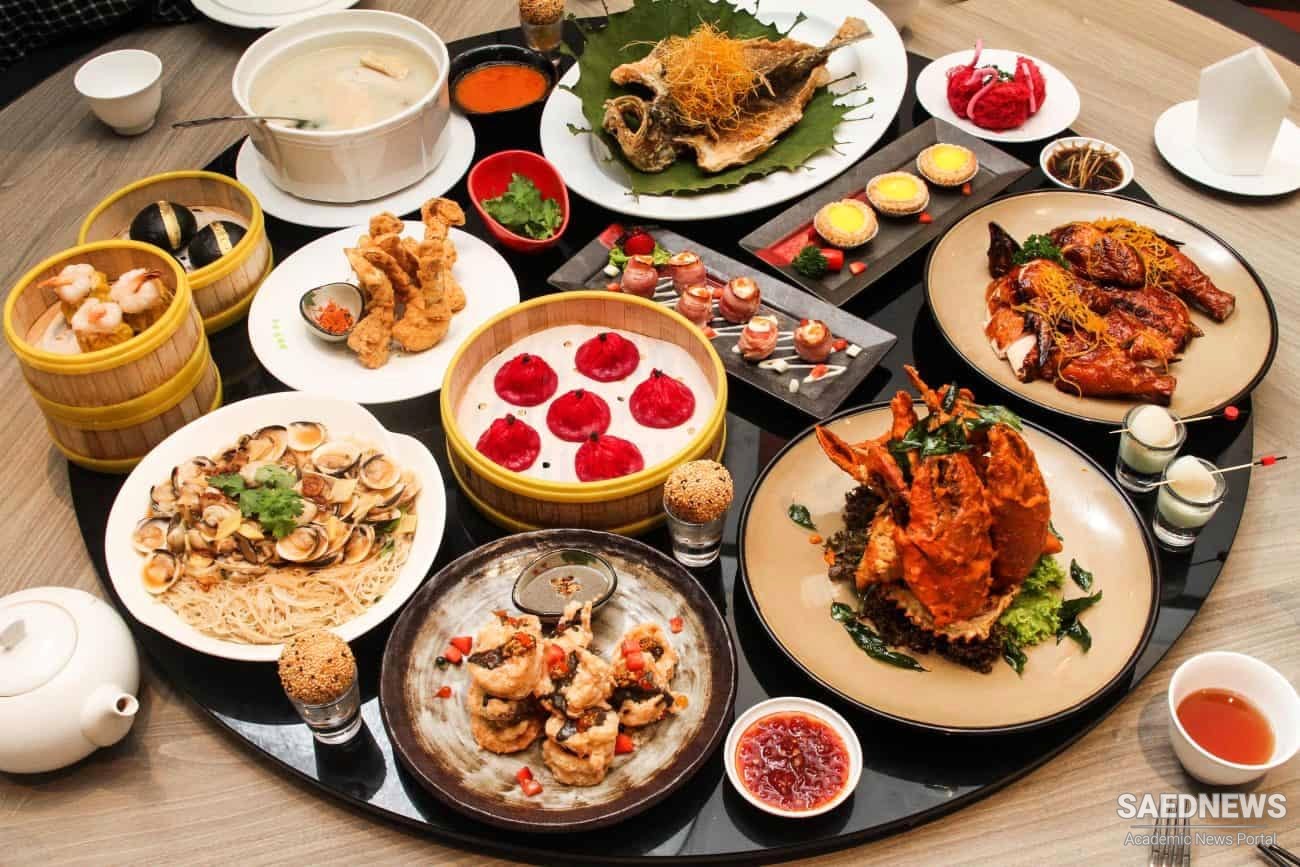By being one of the first Asian civilizations that achieved stability and regular growth, China very quickly managed to acquire very specific taste in food that enabled its cuisine to grow and change with incredible pace. This great attention to food can today be attributed to several factors that enabled Chinese cooks to create the most diverse and interesting cuisine in the world – quick expansion of the Han culture from Yellow River across entire territory of China that covers many climate zones that have their own indigenous ingredients and cooking traditions, constant absorption of foreign cuisine traditions via trading connection or expansions, very popularized movement that infused herbal medicine with cooking making meal preparation very balanced and healthy, and finally never-ending cooking fashion changes that were forced by imperial courts and Chinese elites.
History of Chinese cuisine starts with the 4 thousand year old archaeological findings of the oldest noodle food found in the upper reaches of the Chinese Yellow River. By the time of the Han Dynasty *206 BC – 220 AD), manufacture of various grain food became very organized and cooking also reflected that. Southern china was famous for their rice, and food from the North China Plain was predominately focused on flour products. Fascination with the exotic and highly specialized food started during the reign of Tang Dynasty (618–907), while tradition of drinking tea can be found from the influence of the earlier “Southern and Northern Dynasties” period of time during 5th century AD. During Tang Dynasty, tea became highly popular in elite societies, signifying wealth and balance of health. By the time of the Song Dynasty (960–1279), life in cities became more and more easier, with trade and rise of the manufacturing jobs enabled Chinese population access to better quality of life and better access to food. It was then that Chinese cuisine really blossomed, enabling mixing of cooking, medicine and even religion, establishing strict rules for maintaining “balanced” meals and expanding the ways the food can be prepared, processed and served.
By the time of Yuan Dynasty, China received first contacts with the west, bringing for the first time access to many foreign food ingredients and methods of food preparation. This influence grew even more strongly during Ming dynasty (1368–1644) when trading with the rest of the world became much easier with the establishment of sea trading roots. By then, china gained access to main new plants, animal, food crops, and goods, including the food that was originally found only in the newly discovered “New World” (sweet potatoes, peanuts, maize and many others).
In recent history, founding of People's Republic of China brought several changes of the cuisine that were both fueled by government efforts and created by minorities and western influence. In general, modern Chinese cuisine can be separated using two different schools of food. “Four Schools” refer to the cooking traditions of Shandong, Su, Cnatonese and Sitchuan, while the four additional cuisines developed in the territories of Hunan, Fujian, Anhui and Zhejiang. They all produce incredible variety of food based on rice, noodles, wheat, soybeans, herbs, seasonings and vegetables.


 The Spectacular French Cuisine and Its History
The Spectacular French Cuisine and Its History














































